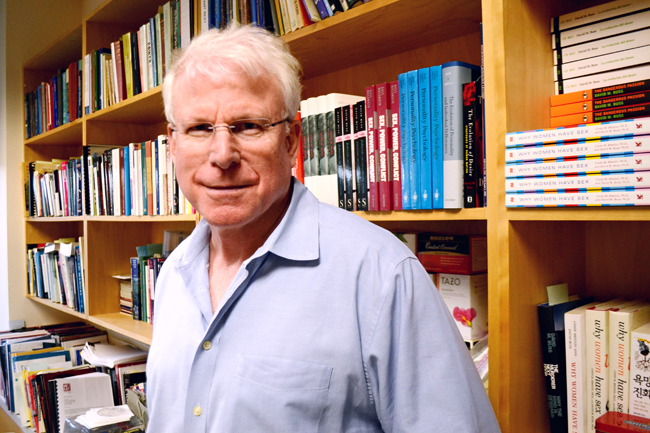Men and women experience sexual regret for different reasons, according to a study conducted in part by UT psychology professor David Buss.
In the study, researchers coded participants’ responses from three different experiments for sexual regret and determined whether the regret stemmed from action or inaction.
Buss said on average, men experience regret following instances when they did not act on a sexual impulse, whereas women experience regret after acting on a sexual impulse.
International relations senior Adrianne Mikesova said she does not find the study’s results surprising.
“I can’t speak for everybody, but I would more likely regret something than not doing it,” Mikesova said.
Buss said sexual psychology is the end product of a long evolutionary process that may not consciously factor into decision making but is nevertheless important to understanding human relationships.
“There’s an enormous difference in parental investment,” Buss said. “Women, by having sex, risk nine months; men, by having sex, invest an hour or an evening. The costs of making bad sexual decisions historically have been much greater for women than for men.”
Buss said even though most people are not aware of the influence of evolution, human history does play a role.
“A lot of the underlying machinery is not available to consciousness, but the underlying feeling of regret is,” Buss said.
Buss said evolutionarily ingrained attitudes toward sex remain unchanged despite the widespread availability of modern contraceptives.
“We live in a modern world with a Stone Age brain,” Buss said. “Our sexual psychology evolved in a time and place that is radically different.”
Psychology and finance senior Victor Silva, one of Buss’ students, said evolution has wired the human brain to react in certain ways. He believes it can take a long time to alter the hardware.
“These evolutionary mechanisms took millions and millions of years to develop,” Silva said. “It’s going to take millions and millions of years to change them.”
Silva said regret serves as motivation to achieve better outcomes going forward.
“Emotions in general have a purpose — if you have sexual regret, that’s going to change future behavior.”
Silva said, in his opinion, women wield the power in relationships, but men use strategies to circumvent this imbalance.
“Men have the ability to feign commitment and deceive women,” Silva said.
Buss said the hook-up culture on college campuses can adversely affect women more than men.
“Men and women hook up for casual encounters, but all the studies show that women feel worse about it than men do,” Buss said.





















